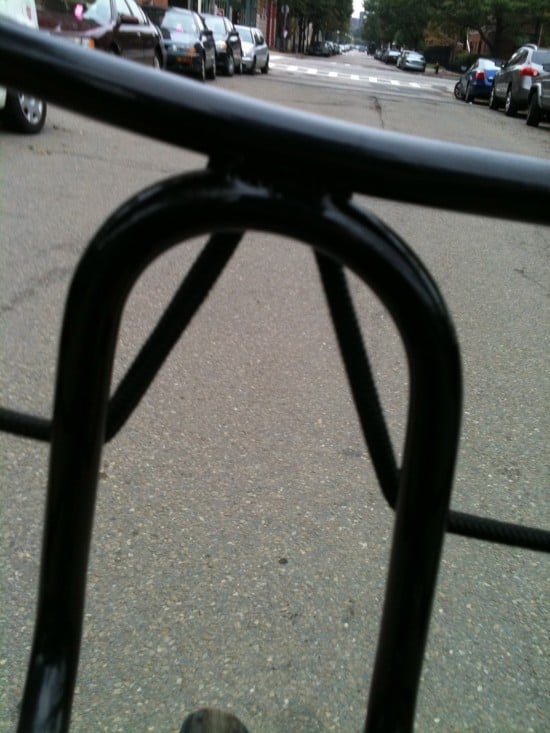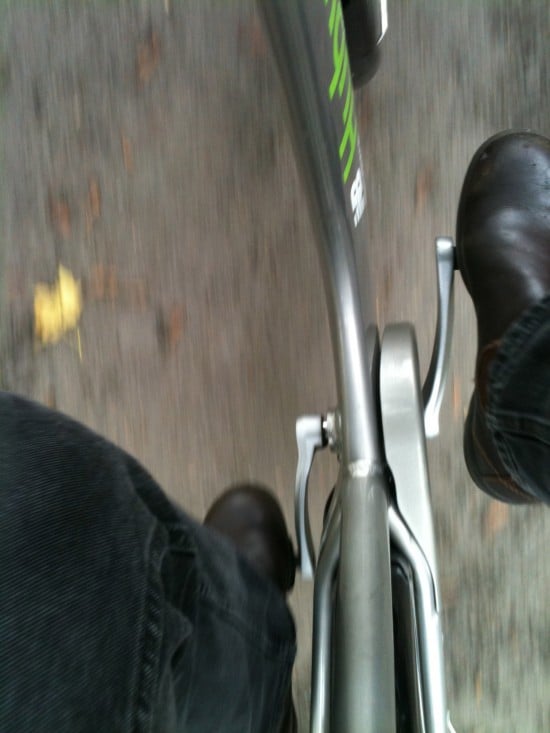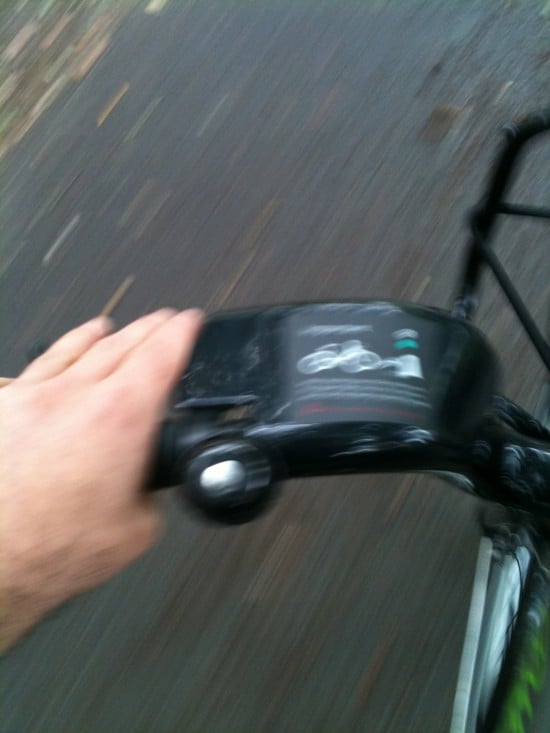Biking in Public
By:
September 24, 2011
Riding a city bus downtown for a round of errands yesterday morning, I remembered Hubway, Boston’s version of the bikesharing programs that have popped up in cities from Paris to Washington to Denver. I had seen the stations at major intersections around town, but had yet to give one of the distinctively husky bikes a try. So I hopped off the bus, found a Hubway station, and checked out a bike.

The process is as simple as any interaction with mass transit infrastructure — there’s a kiosk to take your money and furnish an unlock code; input the code in one of the racks where the bikes stand waiting, and the front wheel unlocks with a resonant click. At five bucks for twenty-four hours’ access, it’s affordable if not strikingly cheap — although if you fit several uses into the period, it quickly becomes competitive with subway and bus fares (annual “memberships” are available at a substantial amortized discount).
I backed the bike onto the sidewalk. It was shockingly heavy. I’m a committed cyclist already, a roadie and a bit of a bike snob accustomed to a light, quick ride with a stretched-out stance; I couldn’t help looking at the lumbering Hubway ride askance. A step-through frame, the weight settles in the bottom bracket (where the pedals connect) in a way that felt ungainly to me. It’s a practical steed, though — safety lights start blinking when you turn the pedals, and a heavy-gauge basket on the front handlebars makes it easy to carry your stuff; the upright riding position is pleasant and easy on the back. But I was bemused and skeptical, unsure whether the whole Hubway thing was really meant for the likes of me.

As I steered the thing into morning traffic, however, a different sensation took hold, akin to the same slightly giddy satisfaction I recall feeling when I started taking books out of the library a long time ago. This is a bike that belongs — to me, to Boston, to my fellow city dwellers. It’s native to a civic commons. It’s infrastructure.

That sense of a commons, of civic participation, wasn’t merely intellectual; it was palpable. I noticed a couple of effects on the way I rode the bike: first, I felt unusually beholden to the traffic laws. I didn’t want to be seen blowing a stop light or riding the wrong way on a shared bike.

Second, it made me feel like a part of the city, a rightful participant in the stream of traffic instead of the outlaw and interloper I usually imagine myself to be when I’m riding in traffic. I’m not supposed to feel that way, of course, but I often do. On a Hubway bike, I felt comfortable taking up a whole lot of space on the road (a good thing, as the bike is way too heavy to operate evasively).
After a stop (at the library, in fact — getting my full measure of commons for the day), I checked in at a kiosk, got an unlock code, and grabbed another Hubway bike. This one rattled a bit; the loose, chattering bell mumbled tintinnabulatively to itself as I rolled along. And I thought, this is more like it, this sounds like a bike. Thing is starting to breathe. And when I arrived at my next destination, I parked the bike and walked away — no worries about locking up my wheel or fixing a flat or leaving the thing out in the rain. This mixture of common engagement and shared burden, the uniquely liberating flavor of the commons.

There’s something deeply satisfying about this kind of civic ownership, this kind of material participation in the social and political urban fabric, something missing in our increasingly monadic society. I want more aspects of city living to feel this. Ideas?
